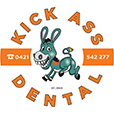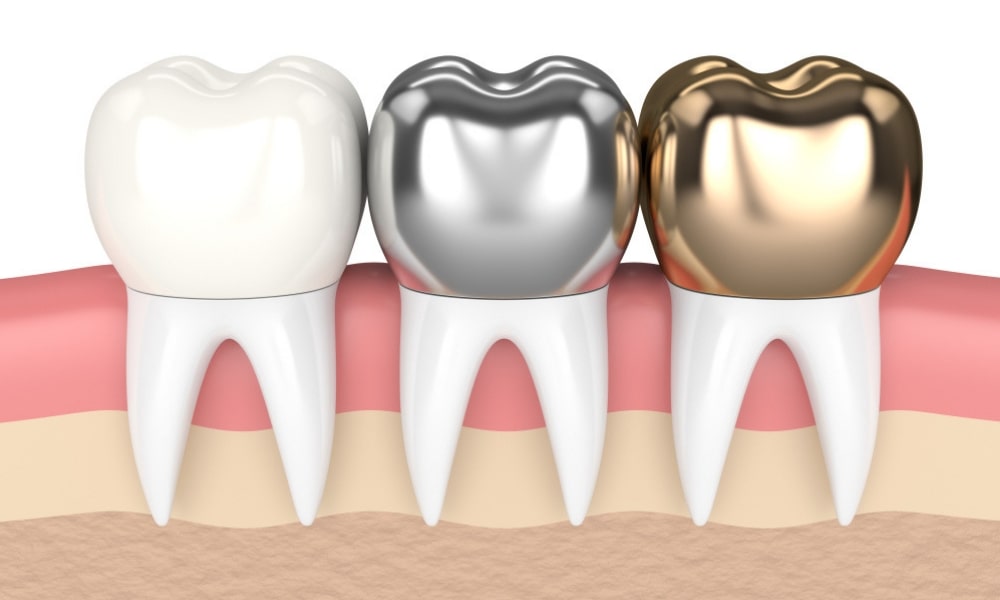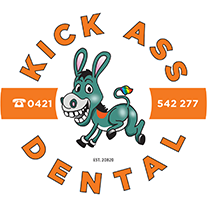How Long Does a Tooth Cap Last?
Introduction
A tooth cap, also known as a dental crown, is a common dental restoration used to restore the shape, size, and strength of a damaged tooth. Dental caps are typically placed over a weakened or decayed tooth to protect it from further damage and improve its appearance. If you’re considering getting a tooth cap, you may wonder how long it will last before needing replacement. In this article, we’ll explore the factors that influence the lifespan of a tooth cap and offer some tips to extend its longevity.
Factors Affecting the Lifespan of a Tooth Cap
1. Material
Dental caps can be made from various materials, including porcelain, metal, ceramic, and composite resin. Each material has its own advantages and longevity. Porcelain and ceramic tooth caps are known for their durability and natural appearance, making them popular choices among patients. Metal crowns, typically made from gold or other alloys, are highly durable and can withstand significant biting forces. Composite resin caps, while more affordable, may not last as long as other materials and are more prone to chipping or wearing down.
2. Oral Hygiene
Proper oral hygiene is essential for the longevity of any dental restoration, including tooth caps. Regular brushing, flossing, and dental check-ups help prevent the accumulation of plaque and bacteria around the tooth cap, reducing the risk of decay in the underlying tooth and the surrounding gum tissues. Neglecting oral hygiene can lead to the deterioration of the tooth cap and the need for early replacement.
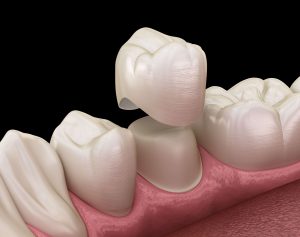
3. Teeth Grinding (Bruxism)
Bruxism, or teeth grinding, can significantly impact the lifespan of a tooth cap. People who grind their teeth exert excessive force on their dental restorations, leading to premature wear and damage. If you suffer from bruxism, your dentist may recommend wearing a nightguard to protect both your natural teeth and tooth cap while you sleep.
4. Diet and Habits
Your diet and habits can also influence how long your tooth cap lasts. Chewing on hard objects, such as ice or pens, can chip or crack the dental cap. Similarly, biting on extremely sticky or hard foods can put undue stress on the cap. Avoiding these habits and maintaining a balanced diet can help preserve the integrity of the tooth cap.
5. Location in the Mouth
The location of the tooth cap in your mouth can impact its longevity. Dental crowns placed on molars endure more force during chewing compared to those on front teeth. As a result, molar tooth caps may wear down or require replacement sooner than those on front teeth.
Average Lifespan of a Tooth Cap
The lifespan of a tooth cap can vary significantly based on the factors mentioned above. On average, a well-maintained dental crown can last between 10 to 15 years. However, with proper care and regular dental check-ups, some tooth caps can last even longer.
Signs Your Tooth Cap Needs Replacement
1. Discomfort or Sensitivity
If you experience persistent discomfort or sensitivity around the tooth with the cap, it could indicate that the cap has worn down or become loose. In such cases, it’s essential to visit your dentist for an evaluation.
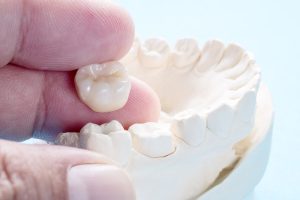
2. Visible Damage
Inspect your tooth cap regularly for any signs of visible damage, such as cracks or chips. Visible damage may compromise the cap’s function and aesthetics, warranting a replacement.
3. Recurring Decay
Though the tooth cap itself does not decay, the natural tooth underneath it can still develop cavities. If you notice recurrent decay around the edges of the cap, it might be necessary to replace the cap and address the decay. https://kickassdental.com.au/patient-information/
4. Change in Fit or Bite
A well-fitted tooth cap should not interfere with your bite. If you notice any changes in your bite or find it difficult to close your mouth properly, consult your dentist for an assessment.
Conclusion
In conclusion, the lifespan of a tooth cap depends on several factors, including the material used, oral hygiene, teeth grinding habits, diet, and the location of the cap in your mouth. With proper care and maintenance, a dental cap can last between 10 to 15 years or even longer. Regular dental check-ups are essential to monitor the condition of your tooth cap and ensure it remains in good shape. If you experience any issues with your tooth cap, such as discomfort, visible damage, or changes in your bite, contact your dentist promptly to discuss the possibility of replacement.
Remember, maintaining good oral hygiene and adopting healthy dental habits will go a long way in preserving the longevity of your tooth cap and promoting overall oral health.
